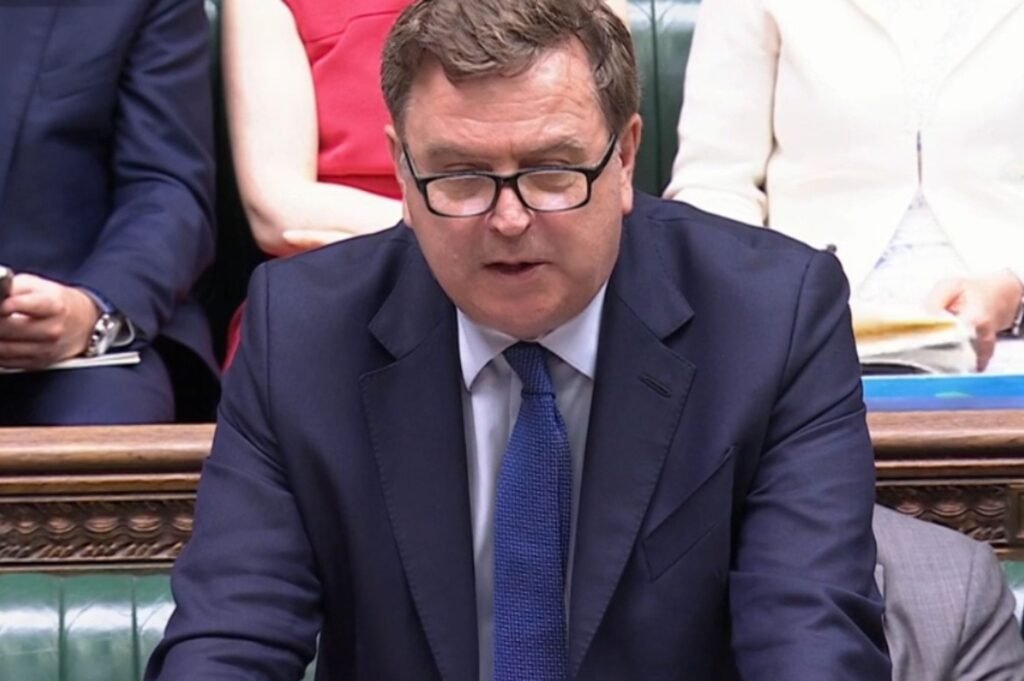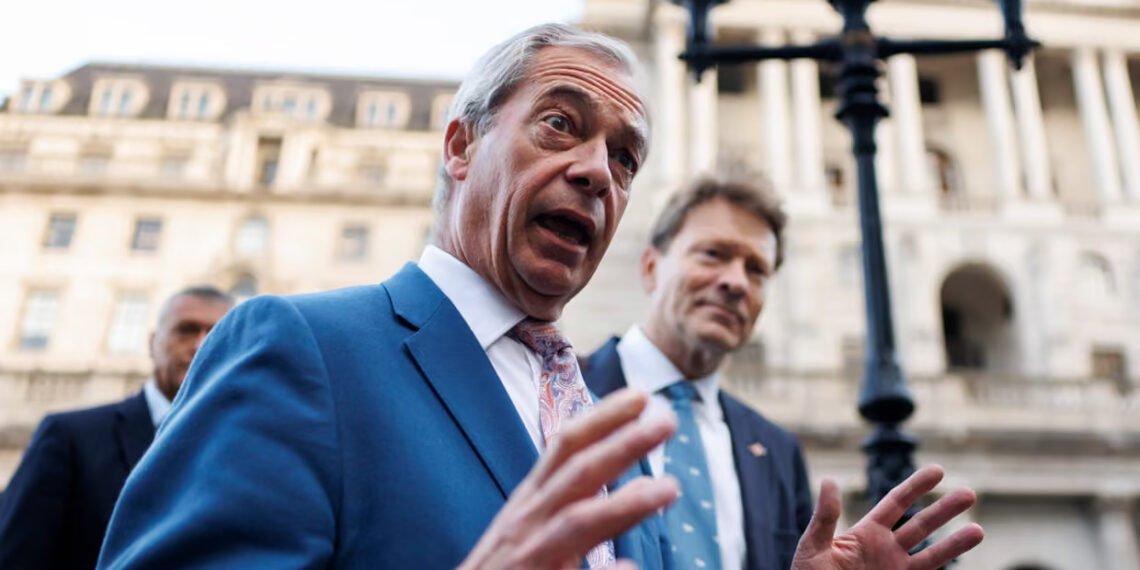Reform UK leader Nigel Farage has intensified pressure on the Bank of England, calling for it to halt bond sales and cut the interest it pays to UK banks.
His demand follows a high-profile meeting on Thursday with Governor Andrew Bailey at the institution’s Threadneedle Street headquarters. Reform MP Richard Tice also joined the discussions, which were convened after an exchange of letters between the party and the Bank.
Farage and Tice have argued that elected leaders should exert firmer control over the Bank’s operations, a direct challenge to the independence granted to the institution in 1997 when Gordon Brown, then chancellor, set up its autonomy.
Following the meeting, Tice released a statement outlining Reform’s position. “If parliament, via the chancellor of the exchequer, gave a different steer to the Bank of England, this could significantly reduce the need for tax rises at the budget,” he said.
Tice added that he would be taking the matter further. “Subsequently, I will be writing to the chancellor and the leader of the house requesting an urgent debate as soon as parliament returns.”
The pushback from Reform has already sparked criticism across the political spectrum. Shadow chancellor Mel Stride warned that such interventions risk undermining financial stability.
“Politicising interest rates and undermining the Bank’s independence risks instability and higher inflation – which means rising costs. Freeing interest-rate decisions from political pressures was precisely why an independent monetary policy was established in the first place.”
Shadow chancellor Mel Stride

Clash Over Independence And Monetary Policy
The pith of the dispute is the Bank’s handling of the quantitative easing (QE) programme, under which large sums of money were created to stabilize the economy during crises. The Bank currently pays interest on the huge reserves built up under QE, while it is also scaling back its bond holdings through quantitative tightening (QT).
Critics, including Reform, say QT is imposing heavy costs on the Treasury because bonds are being sold at a loss. Moreover, QT has been acknowledged by the Bank to exert modest upward pressure on yields for government bonds, or gilts, effectively raising borrowing costs.
Bailey had already dismissed Reform’s arguments in June, writing in a public letter to Tice that the measures suggested were not the Bank’s responsibility. “We have in the past noted that removing remuneration on reserves is akin to a tax on banks,” he wrote. “It is only appropriate that such a tax be imposed by the elected government of the day.”
Last week, the Bank’s monetary policy committee announced it would sell about £21bn of government bonds over the coming year. With around £49bn of bonds set to expire, the pace of QT is expected to slow compared with the previous 12 months. The decision comes amid turbulent global bond markets, which have heightened scrutiny of the Bank’s approach.
Beyond Reform’s pressure, the debate has attracted attention from left-of-centre think tanks. The Institute for Public Policy Research (IPPR), in its latest recommendations, called for the Treasury to reclaim some of the gains banks have enjoyed from rising interest rates. The group has proposed a windfall tax linked to the reserves held under QE, arguing that QT is costing the Treasury as much as £22bn annually.
For its part, the Bank sought to frame Thursday’s meeting as part of regular outreach. A spokesperson stated: “The governor had a productive meeting with Reform UK on Thursday as part of the Bank’s engagement with political representatives.”
As such, whether Farage and Tice can persuade parliament to take up their call for an urgent debate remains to be seen. However, their demands have reignited an enduring question over how far political leaders should influence decisions made by a central bank built on independence.
READ ALSO: Ato Forson Seals Third Debt Restructuring Pact with UK, Eyes $2.8bn in Infrastructure Boost






















